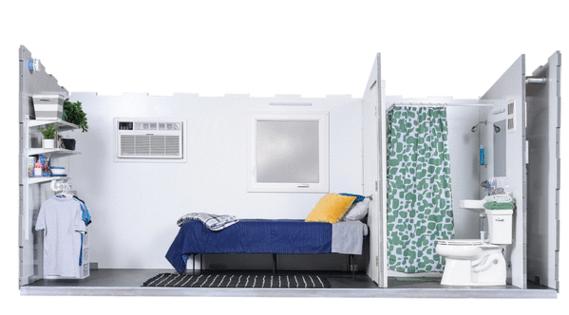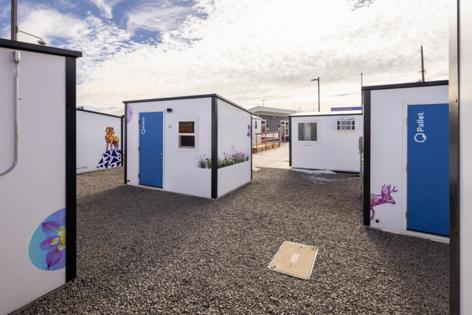An idea to house Florida's homeless: A village of easy-to-build mini homes
Published in News & Features
Broward county’s next idea to help the homeless off the streets could likely be the construction of 10 easy-to-build homes that serve as shelters.
The tiny fiberglass shelters are intended to be transitional, temporary homes with just enough room to sleep and use the bathroom.
There are no kitchens, and they can accommodate a family of four.
“We have to look at every innovative strategy we can find to get people into stable housing,” said Broward Mayor Nan Rich, who has requested the county set aside $750,000 for this new type of housing. Of that, $500,000 would be an annual recurring expense for the operational fees; $250,000 would be to construct the homes.
It will be debated as Broward County commissioners prepare for next year’s fiscal budget. The idea for such shelters was encouraged by County Administrator Monica Cepero in an email Monday to the County Commission. It is just one of the many efforts detailed in an outline of how the county will respond to a new state law.
The new law bans Florida’s homeless from sleeping in public places, and it lets counties designate specific areas for homeless encampments while requiring them to be certified by the Department of Children and Families. The law goes into effect in October.
How are these shelters used?
The county has not yet chosen a vendor, or finalized the model, for the tiny homes, but one possibility being considered is from supplier Pallet, based in Everett, Washington, which was established to address homelessness.
Pallet’s website touts how quickly the shelters can be set up, stating that “no one should go unsheltered when a shelter village can be built in a day.”
The mini homes are reusable, made of durable materials resistant to mold and rot. They have energy-efficient construction, a lockable lever handle and peephole, LED lighting and air conditioning. Homes would have fire extinguishers, smoke/CO2 detectors, electrical outlets and heating and cooling units. On site, there would be a bathroom and shower common areas, as well as a common meal area.
...continued
©2024 South Florida Sun-Sentinel. Visit sun-sentinel.com. Distributed by Tribune Content Agency, LLC.










Comments